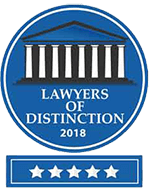When a business is first starting out, it can take some effort to bring business in. Overtime, business will grow, helping the company progress and make profits. However, a company might reach a plateau, causing some businesses to attempt to rebrand or market themselves differently. While this is an innovative way to attract new business, if done incorrectly, it could result in disputes.
Unfair trade practices occur when a company uses deceptive, fraudulent or unethical methods as a means to obtain more business. Such acts include misrepresentation, false advertisement or representation of a good or service, tied selling, false offers, deceptive pricing and the noncompliance with manufacturing standards.
When such acts occur, this is not only considered unlawful by consumer protection law, but it also opens up the possibility for consumers to seek recourses for these acts. With regards to unfair practices, this occurs when the act causes or is likely to cause substantial injury to consumers, cannot be reasonably avoided by consumers and is not outweighed by the benefits to the consumers or to the competition. In comparison, deceptive practices are an act where there is a representation, omission or practice that misleads or is likely to mislead a consumer, a consumer interpretation of the act is reasonable under the circumstances and the misleading representation, omission or practice is material.
When such an act occurs, it can be harmful to a business. It could also damage business relationships, resulting in business litigation. No matter what side of a deceptive trade practice you are on, it is vital to understand the matter and what steps could be take to resolve the legal dispute.
Source: Investopedia.com, “Unfair Trade Practice,” accessed Feb. 10, 2018




